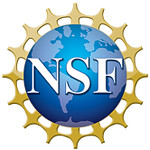An NSF-funded program. The US National Science Foundation (NSF) created the International Research Experiences for Students (IRES) program in order to help US students in science and engineering become engaged globally, and to help them gain the tools and contacts to perform internationally-recognized research.
The “US-German Research on Human-Automation Interaction for the Future of Work” is an NSF-funded IRES program, which is collaboratively managed by Andrew Kun of the University of New Hampshire, and Orit Shaer of Wellesley College. The program funds students to perform summer research at one of two research labs in Germany. One lab is the Human-Centered Ubiquitous Media Lab of Professor Albrecht Schmidt of the Ludwig Maximilian University of Munich. The other is the Media Informatics and Multimedia Systems Group of Professor Susanne Boll at the University of Oldenburg in Germany.
The overarching theme: human-automation interaction for work. Automated systems have been around for decades, however today, computer-based automated apps and devices are woven into our professional and personal daily lives to a greater extent than before. Our dependency on automated systems such as expert systems, conversational agents, vehicles, and drones in daily tasks will likely increase in the near future, and will require new forms of human-automation interaction, allowing us to make decisions and to collaborate with automation in order to achieve some goals. For this reason, the focus of the program is on developing human-computer interaction with automated systems. During the spring of 2025 we will identify specific research topics for each student based on their interests and strengths, and the ongoing work at our hosts’ labs.
Research questions. Students will undertake projects related to the following scientific questions:
- How do we allocate tasks between humans and automation? In many practical settings task division is a difficult problem – how can we create guidelines for task division in various work-related contexts?
- How can interfaces allow for the appropriate level of human trust in machines, and reduce incorrect use and confusion? Whenever automation is involved, we need to design user interfaces that support what Lee and See call calibrated trust – a level of trust that is appropriate for the capabilities of the automated system.
- How do we support user attention? The broad question of attention is relevant in many work contexts – in mobile environments like an automated vehicle where the user might have to drive some of the time, and at the home office where multiple distractions could compete for the user’s attention.
- How do we create and leverage new human-automation interaction technology, and support both work and worker wellbeing? How can technologies such as speech interaction, augmented and virtual reality, and tangible interfaces support human-automation interaction? How can we assure that the technologies are used in an ethical way? Furthermore, as Yuval Noah Harari points out in his book “21 lessons for the 21st century,” AI might soon become better than we are at many tasks. How can human users best use, collaborate with, and benefit from such super-smart AI?
Program dates. UNH and Wellesley received NSF funding for the IRES program for three years, from 2023 to 2025. In 2025 the program dates are expected to be approximately June 1 through July 31.
CHIWORK conference. IRES students will participate in the CHIWORK 2025 annual meeting in Amsterdam.
For more information, check out our IEEE Pervasive Computing article on this program, and click on the links below:
